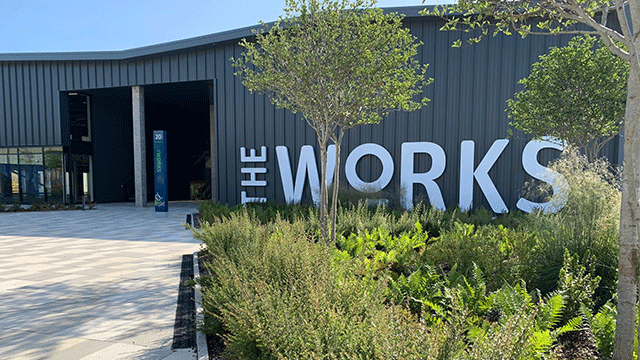With its agency business faltering and its share price sliding, Chesterton must find a way to raise its profits. As new chief executive Lorraine Baldry prepares to unveil her strategy, Jane Roberts looks at her options
When Chesterton’s interim results come out in March there is one thing you can be sure of: they will be awful. Twelve days ago, the quoted surveyor issued another profit warning, its third in the past year. The fact that there will be excuses as to why things are so disappointing – again – will do little to cheer up staff and shareholders.
Management will point glumly to the provision for a legal dispute over work done to the Birmingham office which is costing £800,000 – Chesterton had a chance to break the lease a couple of years ago but took a premium to stay – and the £2.5m cost of 65 redundancies and other savings that have dragged the business into loss. The losses will not be offset by any last quarter upswing in business; the profit warning says that trading in December was “unusually slow”.
Yet everyone concerned with Chesterton’s future is looking further ahead than March. The one piece of good news in the past few months was the appointment last December of Lorraine Baldry as Michael Holmes’s replacement. What everyone wants to know is whether Baldry, formerly chief operating officer of Prudential Portfolio Managers and chairman of its property arm and recently managing director of Regus, can turn Chesterton round with her reputed people skills.
Consultation with colleagues
Baldry is not saying anything, just yet. In post for just four weeks, she says she needs longer to talk to her staff. “I am in the process of seeing everybody. It’s going to take me another two to three weeks to speak to everybody,” she says. “In due course, I shall cogitate and then we’ll have a strategy.”
Sceptics say she should hurry up and say what she’s decided to do to earn her basic £200,000 and trigger her bonuses. But those who know Chesterton well say that her decision to talk to colleagues first is the right approach. While Holmes, an accountant, was credited with tidying up the quoted agent’s balance sheet, he wasn’t famed for his people skills.
When Holmes took over Chesterton in 1997 it was a sprawling business following rapid expansion under Sir William Wells in the run up to the float in 1994, and later under Giles Ballantine. It still employs 1,600 staff. Many say it had already lost its focus. Holmes was committed to keeping everything, but his big idea was to impress the City by building up facilities management work to earn steady “rain and shine” income on five-year contracts to offset the volatility of traditional transactional business.
But staff say that, as a non-property man, Holmes failed to connect with the culture of the agency business he was brought in to run and so failed to act decisively as the higher margin commercial and residential agency started to decline.
If Holmes’s idea was to build up the FM work to a level where Chesterton could be reshaped as a service company on a much higher price-earnings ratio it didn’t work. As one former agency director at the company says bitterly: “Quality income is all the stock market is interested in. It wants positive income first, then sustainable income. Chesterton got it round the wrong way.”
Staff and rival firms believe Baldry has the right skills to turn Chesterton around. “She’s from an investment background and knows where the strong earnings are,” says one former director. Staff say that she is highly visible, and showing leadership – going to meetings, getting involved and planning how to work her impressive contact base for the firm’s benefit.
A good time to make changes
She has other things on her side. Besides an enormous amount of goodwill in the market towards both her and the firm, there is the Chesterton name, still a strong brand in both the commercial and residential markets, with the firm’s reputation for good client care. She should also have a good sounding board in the shape of former head of residential Tony Mckay, the Australian who was promoted to the board last year and is highly regarded by insiders as being “his own man”. And there is £4.7m cash in the bank.
“In that sense, it is a good time to make changes because she is in the position to execute a strategy”, says one former employee.
Reinvigorating the agency business is likely to be the top priority. The stream of market-makers who have left the company over the past five years say its reward system fails to motivate fee-earners. “I lost people on my team to rivals because we couldn’t compete,” says one. “There was no appreciation at the top about giving people lower down the ladder on smaller salaries the potential to earn big bonuses. But, in my experience, the best people aren’t frightened about taking a risk.”
Another says that, more than once, he put forward people he wanted to take on to beef up an agency team, “but there was always a reason why I couldn’t do it”. Yet another says there are good people at Chesterton, but many of the teams are too small and too fragmented.
Need to beef up client roster
Perhaps the toughest task for Baldry, they say, will be building up its roster of heavyweight clients. Currently, the base is small and dwindling; the slide is particularly evident in investment and residential. The upshot is that people leave because they see better opportunities elsewhere. “The company needs business getters to build up its client base,” insists one former director.
“If you were in a rival big firm, maybe half your billings would come from in-house clients or because of the firm’s reputation; at Chesterton, you’d have to bring in most of the billings yourself.
“But it doesn’t reward the people who do that aggressively enough. Rewards should be loaded to give business getters a bigger percentage of the new business they bring in, especially in the early years.”
Rivals say Baldry should also take a hard look at the regional network. Chesterton still has 17 commercial regional offices, stretching from Plymouth to Aberdeen. Bristol, Leeds and Manchester are said to be good, but Birmingham has lost ground. Baldry may decide to close some, or revisit an idea that wasn’t taken forward by the board several years ago, of offering some kind of franchising or transfer of ownership. Longer term, relocation out of the 25,000 sq ft (2,320m2) London headquarters in Brook Street and relocation to a building with better floorplates is the goal.
Should the residential business be sold?
Baldry could also consider selling the residential business, based in Chesterton’s Connaught Street office but also operating nationwide via a 20-strong network. However, some rivals say that the residential business would have fetched a far better price 18 months ago, and that Chesterton could hang on to it for the time being because it has been a useful cash cow in the past.
Others say it would be better to sell and reinvest the proceeds in strengthening the FM and commercial agency businesses and forging meaningful links between them.
The FM division, branded Chesterton Workplace Management and headed by David Walker, has expanded steadily and provides services valued at around £500m to the likes of ICL, Chloride, Lattice Group and Cable &Wireless on mainly five-year contracts. In the year to June 2001, its stated profits were £1m. It is rumoured to have attracted the attention of potential bidders, including Taylor Woodrow.
Baldry will have to decide whether it is worth sticking with FM, a thriving but low-margin business which has been studied and rejected by all Chesterton’s transaction-based competitors.
Altogether, Baldry has many tough decisions to make – and in turbulent economic conditions. As one competitor says: “It wouldn’t be so bad but there isn’t any volume in the market. It’s bloody hard because people are sitting on their hands.” Her progress will be watched like hawks by the two big shareholders who acquired stakes last year: listed security company Reliance Securities, with 16.7%; and private investor Mohammed Jafari-Fini with 11.3%.
Presumably they are hoping to get more than one former Chesterton director will who still has shares. He plans to sell them and set the loss he will make of around 70p-75p a share against capital gains tax, saying “That is where their value lies to me. It’s a sad state of affairs, isn’t it?”
|
Chesterton’s chequered history October 1997 Chairman Sir William Wells announces plans to step down as company reveals £7m pretax loss for the year to June February 1998 Shares suspended as merger with Summit Group is revealed April 1998 Merger talks with Summit abandoned September 1998 Company posts £2.1m pretax loss for the year to June. Underlying operating profit was £4m March 1999 Chief executive Michael Holmes’scost-cutting continues with the loss of 35 jobs from facilities management division September 2000 Shares up 8.3% as company reveals a 24% increase in pretax profits to £5m on turnover of £142m June 2001 Surprise profit warning sends shares down 25% to 26p September 2001 Holmes resigns as company reports a plunge in profits to £2.3m. Shares fall 33% to an all-time low of 14.5p November 2001 Chesterton announces 65 job losses from its 1,600 workforce and warns that it will make a pretax loss in March 2002 December 2001 Shares jump 10% on news that Lorraine Baldry has been appointed as chief executive January 2002 Company issues a third profit warning |
|
Chesterton’s share price (January 1997-January 2002) |
|
Shares fell to an all-time low of 14.5p last September |
|
Source: Hemscott |
|
What rivals would do “Chesterton is big and ugly rather than big and beautiful. There are so many disciplines but without it being a brand known for excellence in something. That’s a problem these days when potential clients have so much choice. “If it isn’t broken up, then the only alternative is to re-energise the company by turning round the staff. The only production asset is the people, and if there are not enough true fee-earners, nor a belief that they are the best, then the challenge is to turn that around. It is question of inspiration – and driving that forward takes a lot of personal grit.” “Chesterton isn’t going to be the same business at the end of the year as it is now – it can’t continue with the same structure. Lorraine Baldry is in a no-lose position and she can be as dramatic as she wants. She’s either going to turn it round with her special people skills or it will crash and burn. “What you will probably see is a break-up of the constituent parts. FM is prospering and could be sold. Or residential could be spun off and the capital invested in keeping FM and agency together, if you can make the connection work between the two sides. Our industry hasn’t scratched the surface on corporate outsourcing yet.” “Chesterton hasn’t got where it has by accident. It was run by an accountant who found agency too risky. But in looking for a way that seemed more secure than riding the market he destined them to never make reasonable profits. “We believe that if you’re going to run a good business in our market then you have to be the best you possibly can in the transaction market. Because unless you can lead in agency, investment and development how do you ever make the money to pay for the best people?” |










